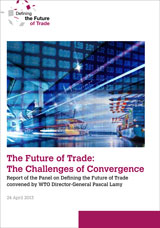"One thing that experts know, and that non-experts do not, is that they know less than non-experts think they do."
Dani Rodrik has a very interesting piece of advice for "experts" in his blog a few days ago quoting Kaushik Basu above.I just have to quote it to re-emphasize the relevance:
"Economists would be so much more honest (with themselves and the world) if they acted accordingly – letting their audience know that their results and prescriptions come with a large margin of uncertainty. Public intellectuals would do so much less damage if they did likewise. And if experts are not aware of the limits of their knowledge – well, they do not deserve to be called experts or intellectuals.
The real point, though, is that the other side – journalists, politicians, the general public -- always has a tendency to attribute greater authority and precision to what the experts say than the experts should really feel comfortable with. That is what calls for compensating action on the part of the experts."This applies to all fields of expertise I guess. Any trade law experts listening?



